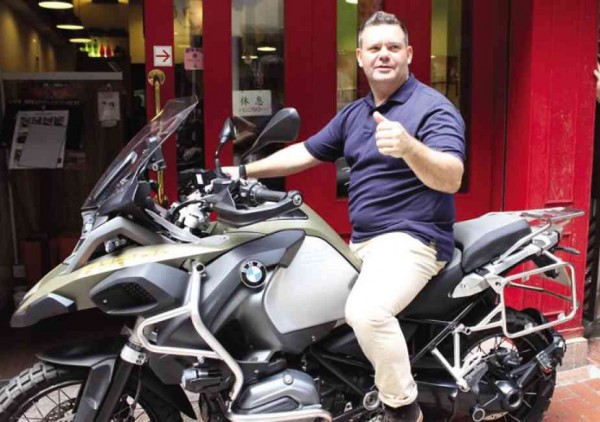“Food says a lot about a country and its people… if it’s generous and reflects the history and diversity of a nation,” said MasterChef Australia judge Gary Mehigan, in a recent phone interview. “Australia,” he added, “is a great example of how a country’s diversity has dictated its very eclectic cuisine.”
The English-Australian restaurateur appears in FYI’s six-part food and travel series “Far Flung With Gary Mehigan” (Tuesdays, 9 p.m.). He visits different travel destinations, including India, Laos, Vietnam, South Korea and Hong Kong. The “travel diaries” detail his culinary discoveries and experiments.
Mehigan said that his immersions were important in teaching him new knowledge, including the creation of tastes or cuisines for specific people.
“Usually, the available ingredients and temperature dictate a cuisine. Their history and the neighbors they share, like Vietnam and Laos, or who they were inhabited by, like the French influence in Vietnam, and the English in Hong Kong, also steer a country’s cuisine in a certain direction.”
“Far Flung” also brought the host-chef to “far-flung” wet and dry markets, where he discovered some unheard-of ingredients. The show required Mehigan to present his own interpretation of certain dishes; he studied India’s Tiffin box lunch for the debut episode, which proved quite the challenge.
“Oh, that’s a difficult one… every country has its own challenges; I suppose every culture has its own, unique way of treating its food. I found particularly that when I was in India. Everything that I learned was back to front! It was opposite to what I was taught in French cuisine, which is what I’m an expert at. What I found really interesting in India for example was the use of raw spices in dishes, something that I was always taught to cook out.”
Mehigan got to sample a variety of street food, apart from visiting historical and scenic locations in the course of making the series. But the most rewarding thing about doing the show, he said, was getting introduced to a world of eclectic, adventurous tastes.
“Getting to discover new styles of food that I didn’t know much about, Korean food for example—the bibimbap, kimchi and kimbap— opened up a whole new world of food.”
As for the series’ entertainment value and accessibility, Mehigan said, “[I met] so many interesting and inspiring people along the way… I hope that, vicariously, audiences will get to discover new styles of food and destinations, through my travels. By sharing a recipe each episode from my own kitchen, which shares some of the ideas and techniques I discovered along the way, [the show] will assist the viewers and inspire them to try different cuisines.”
